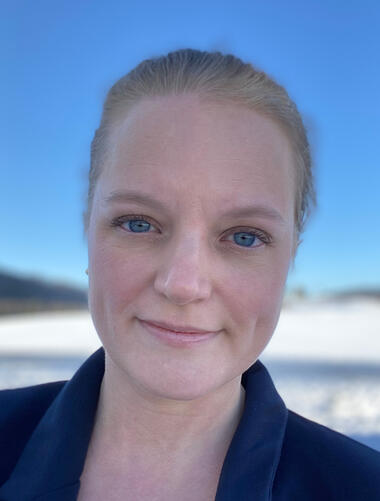Marianne Kjørstad ved Fakultet for teknologi, naturvitenskap og maritime fag (TNM) vil forsvare sin avhandling for graden philosophiae doctor (ph.d.) i programmet Nautiske Operasjoner ved Universitetet i Sørøst-Norge (USN).
Tittelen på avhandlingen er: «Exploration and early validation in Systems Engineering: A study on combining systems and design practices in systems development towards innovations in Norwegian high-tech industries».
Start for prøveforelesning kl. 13.30 og disputas kl. 16.00 i auditorium Hegstad/2202. Mottakelse dronesonen/utstillingslabben kl 19.00.
Om avhandlingen:
 This thesis on exploration and early validation in Systems Engineering focuses on engineering practices towards high-tech innovations in the early systems development phase. It looks towards systems and design approaches to characterize and employ a framework supporting systems engineers in defining the problem to be addressed and the iterative creation of systems concepts to resolve these issues.
This thesis on exploration and early validation in Systems Engineering focuses on engineering practices towards high-tech innovations in the early systems development phase. It looks towards systems and design approaches to characterize and employ a framework supporting systems engineers in defining the problem to be addressed and the iterative creation of systems concepts to resolve these issues.
The evolving technology enables systems that interact and intervene with people and organizations more complexly than ever before. Consequently, the high-tech industry faces a rapidly changing market need and systems with increasing socio-technical complexity.
The industry needs rapid adaptation to change to stay competitive. Staying ahead of competitors and providing significant innovative solutions are essential for the industries’ business value. In recent years, the literature has proposed combining systems and design approaches to cope with real-world problems in systems development towards innovations. However, the literature on practices to support this combination is still young. As a result, there is a knowledge gap of a practical framework to achieve this.
This thesis presents applied research conducted in an industrial context as part of a research collaboration project with four Norwegian high-tech companies and two academic partners within Systems Engineering and Systems Oriented Design. The research collaboration project aimed to establish a combined systems and design framework for the industry partners to achieve significant innovations. The industry context is within the business domains of the four industry partners, primarily focusing on the early systems development of a large-scale renewable energy system for operation in ocean space.
This thesis contributes to the Systems Engineering body of knowledge by gaining insight into the industry needs for a combined systems and design framework in the early systems development phase. The thesis identifies the characteristics of a framework and broadens the theoretical understanding of how such a framework supports the engineering practices towards high-tech innovation. Furthermore, the thesis proposes a practical method to guide the systems engineers in employing the framework and indicates potential challenges and lack of system engineers’ skills to practice this way of working.
This research was funded by the Norwegian Government through RFF Oslofjordfondet and by partners, under Grant ES583290, as part of the H-SEIF research collaboration project.